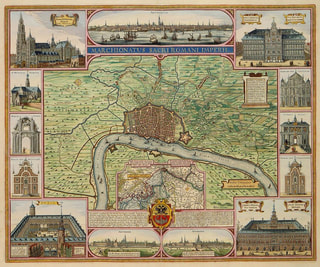|
 Antwerp
Antwerp
The declaration of war against Charles V in January caused significant trading problems on both sides of the North Sea.Most of England’s foreign trade on 1528 was funnelled through Antwerp in the Low Countries – present day – Belgium.
England exported cloth through the London Merchant Adventurers, a conglomeration of merchants, who in the opposite direction imported a substantial range of foreign goods including wares ranging from sword – blades, frying pans and harp strings to satin, nutmeg and molasses.
At the beginning of the 16th century Antwerp accounted for 40% of world trade.Historian Fernand Braudel claimed that Antwerp became "the centre of the entire international economy, something Bruges had never been even at its height."
Both sides came to an agreement to lift the embargo from 1 May 1528 to the end of February 1529.
England exported cloth through the London Merchant Adventurers, a conglomeration of merchants, who in the opposite direction imported a substantial range of foreign goods including wares ranging from sword – blades, frying pans and harp strings to satin, nutmeg and molasses.
At the beginning of the 16th century Antwerp accounted for 40% of world trade.Historian Fernand Braudel claimed that Antwerp became "the centre of the entire international economy, something Bruges had never been even at its height."
Both sides came to an agreement to lift the embargo from 1 May 1528 to the end of February 1529.
